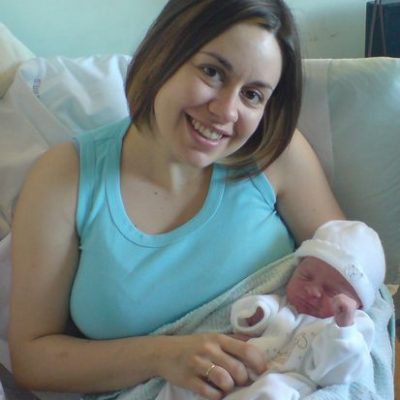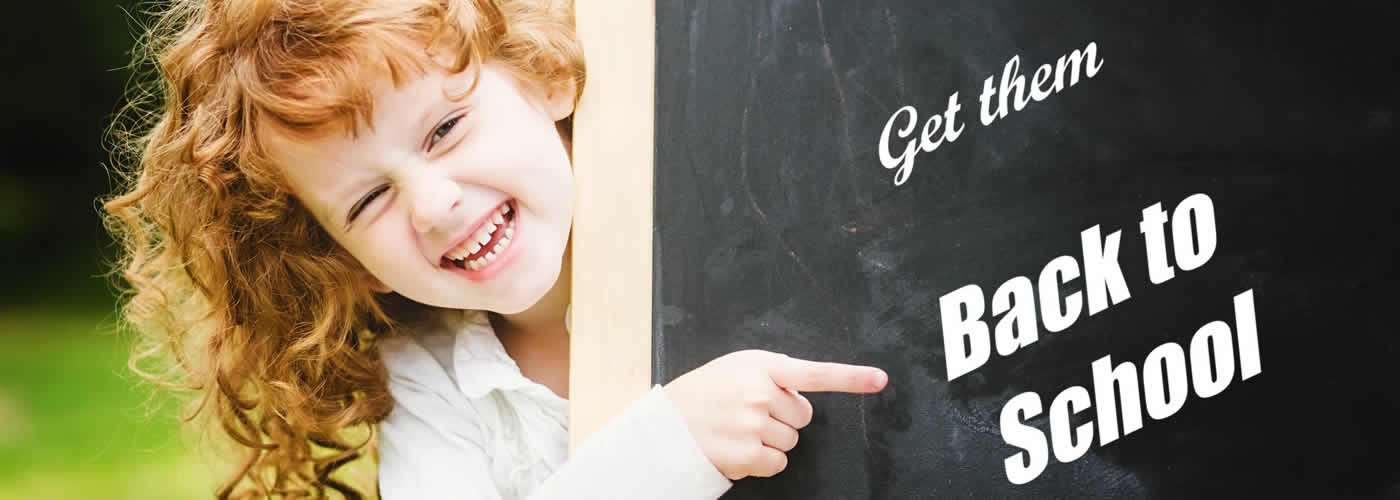
Therapy for Children
Sue has been working with children to show them how to reduce anxiety, phobias and behavioural issues, for the past 17 years. She has a range of possible therapy options, depending on the problem, the child’s age and their personality.
More so than in any age group the 7-18 year olds need a personalised plan that works quickly.
Changes to Behaviour and Emotional Responses
At Lutterworth Health Sue offers specialist therapy for children.
With problems such as, but not limited to, the following;
Fears
Phobias
Anxiety
Anger
Depression
Panic Attacks
School Avoidance
Emotional Issues
Behaviour Issues
Has your child has been talking about emotional issues or displaying behaviour that is unusual for them?
Please know that this is not unusual amongst 7 to 18 year olds. For some it’s a very short term “blip”, for others it highlights a call for help and, if not answered, can lead to ongoing problems.

The school years are often challenging. School testing is constant and increases with age. The pressure to do well, for parents and against their peers grows too, even when they are not told they’re “expected” to do well, many children just assume that’s the case. Add in puberty and constant movement within friendship groups and navigating possible changes and problems at home. That becomes a lot to handle and kids become scared.
Some will turn inwards and become withdrawn and quiet, others will turn outwards, becoming more aggressive than usual or behaving in unexpected ways
For some, this fear is displayed as “challenging” behaviour. Perhaps a change to their usual responses and this might show up in their relationships with parents, siblings and friends. Or, a previously calm child changes within weeks to an frightened, angry or even abusive person, unlike the one you used to know.
When happy kids become afraid or reluctant to lead what was up until that point, their normal life and patterns. Or when they stop sleeping well, become more clingy, start imagining accidents or emergencies.
How does anxiety affect a family?
The ripples (and sometimes tidal waves) which changing and/or challenging behaviour cause can ignite tension between sisters and brothers and have a negative affect on the whole family. It’s not unusual for one parent to write off the behaviour as just a phase or bad behaviour, whilst another sees it for what it is…a red flag. Often it’s not until the unseeing parents have listened to the child in our therapy rooms that they realise the true level of worry, fear and pain their child is carrying.
When to look for help for your child, tween or teenager?
Essentially, when their behaviour and beliefs change, for the worse or begin to affect family members, that’s when outside help is needed
It can be dealt with quickly and easily.
The key is to help your child change their thinking. Emotions then improve, for the positive. Responses and behaviour will change too.
Your child will not only learn how to manage their thoughts, feelings and responses but the techniques Sue will show them will help them in their later years too. Exam nerves, interview nerves…even dating nerves can be calmed in the future, with the same techniques. The key is for changes in thinking to become habit and that takes repetition and a little time.
Whilst this change in outlook, emotion and behaviour can take 8/9 weeks for an adult, children are often greatly improved within 6, and those improvements carry on after therapy
Therapy choice for kids
Sue offers a range of therapies. The Relaxed Living Programme. Using Applied Psychology, a form of CBT, (Cognitive Behaviour Therapy, one of the “talking therapies” recommended by the NHS.) She is also trained in Hypnotherapy and EMDR (Eye Movement Desensitization and Reprocessing) and common sense!
With 17 years experience, Sue can recommend the best and fastest route to a happier life for your child, offering modern therapy for children.
For more information on therapies, please visit our Therapies page
How does Sue make sure information is taken in and used?
Everyone has their own “learning style.” For some to hear instructions is enough. For others they need to be able to construct situations in their mind…to “see” the circumstances they might use new techniques. Some need a physical reminder, a prompt you could say.
Using a flip chart and drawing as a visual support adds to the child’s understanding in the clinic. Physical “props” are also used to cement the knowledge and improve understanding. Examples of other children’s journey through therapy and the way they learnt to use the techniques will further help the process. This aids the child to go from learning, to habit.

For the under 16’s a parent or trusted adult will need to attend sessions too. This allows you to support, guide and remind them during the week, between sessions. You know your child best and can pick up on issues and learning points as they arise.
It’s invaluable during the session, when you can prompt past issues that might now be dealt with. In fact, many parents use the techniques themselves and teach them to their other children too. It’s not unusual for the whole family to benefit.
Free Screening Session
The route we decide to take to help your child will follow a brief telephone call with a parent. So, Sue will ask for some background information, to get the best from the Free Screening Session, She needs to have an idea of the problem and some insight into your child, their life and pastimes.
The Free Screening Session is for you and your child to get a feel for how Sue works and whether you and they feel comfortable with her. Ideally both parents will attend this session. It sends a strong message to the child that you are both taking their issues seriously and are there to support them. It also means there are no misunderstandings later about what the therapy will involve. However, in some cases that isn’t possible and then it will be up to the attending parent to pass on information and gain approval to go ahead.
Therapy Sessions For Children
Charges are per session and each session will last between 45 to 55 minutes (although we often go over time, when we’re doing well and the session is flowing, or when extra help is needed)
Most children will have undertaken the Relaxed Living Programme and will be at the end of that programme in 6 weeks.
Please visit our FEES page for the cost of sessions.
If you’d like more information, would like a chat or have questions, please call, text or email Sue.
Even this small step could make all the difference to you, your child and your family life
Just to let you know I went to my dental appointment this morning and had to have 4 injections in my mouth, at first I was slightly worried because I didn’t have time to imagine my ‘safe place’, but by the time he put the next needle in I was completely fine and calm. It definitely was not as traumatic and painful as I used to believe it was. I’m just emailing to say how grateful and appreciative I am, it really has helped me so much!
I have now lost 1.5 stone, which I am truly delighted with! Thank you for all your help
Sue, feeling great as I have now lost a total of 10lbs
Hi sue thank you again for my treatment it’s been nearly two weeks now. I am settling into being a non smoker really well. I wonder why I ever smoked in the first place it just seems so pointless. I have been filling my time up easily planning new ideas for my business. I feel like I spend more quality time with my son as I’m not constantly thinking about when I can sneak out for a fag! I have been to the gym much more as I know my drive there and back won’t involve a fag stop! I feel fitter, healthier and better already. Every now and then I think about smoking but I use the tools you gave me and the thought disappears within seconds. Thank you again for helping me become a non smoker.
I just wanted to drop you a line to say thank you for helping me stop smoking. It was my one month 'anniversary' on friday and since our session I have not looked back. It's funny - sometimes I forget I ever even smoked at all! Thanks again!
I came to Sue with a best man speech to perform and a debilitating fear of public speaking, I left with a new found confidence and outlook on life. Sue was welcoming and reassuring from the start, making it enjoyable for me to attend sessions. She not only taught me the strategies needed to overcome my fear, but lessons for all aspects of my life as well. I couldn’t recommend Sue highly enough.
Hi Sue, I'm 12st 3 and still dropping! I have now lost 3 stone which is kind of unbelievable! Thank you so much
Thank you - 5 months on Hi Sue! Long time no speak- I hope you are well! Just wanted to say thank you for everything you’ve done- I’m at my happiest I’ve been in years / comfortable in myself and I’m so grateful for everything! Work is going great now, taking on my responsibilities- and I’m loving it. But yes just thought I’d send you a message, everyone has said what a change they’ve seen in me and I think of you every time :-) so thank you!
I certainly feel the sessions have been of great benefit and I am feeling more able to cope with the IBS. I will certainly recommend you to many others
Hi Sue I got hypnotised from you over two years ago for stop smoking and have not smoked since.
Reporter Hayley O’Keeffe writes about how hypnosis saved her from a lifetime of catching the bus.
I failed my driving test six times, there I said it.
Aged 28 this was not a good thing for me, learning to drive was something I felt I should have done a lot, lot sooner, but as circumstances dictated it just never quite happened. I’ve had plenty of lessons mind you, and whenever I had any spare money would spend it on intensive courses to try and get myself that illusive pink card. But to no avail, when it came down to actually doing the test I was just so nervous. I’ve had tests where the examiner has grabbed the steering wheel, where I’ve travelled in second gear down Bedford’s London Road, and where I’ve (almost) gone the wrong way around a roundabout. If I’ve ever cut you up I’m very sorry, I was just nervous! I’ve had some great tuition too, from the ever patient Gerard Doyle of Drive Johnsons, he has had to put up with a lot I can tell you. Part of it must be to do with my age, the 17-year-olds just hop in and get going, but I think it was predominantly my mindset. I’ve always been the passenger in the car, and have never really been interested in motoring, super cars and especially not Top Gear! Being behind the wheel seemed like an alien world and was more than a little scary. So that’s where Sue Wilson came in.
Sue works at Bedford Health in St Cuthbert’s Street and is a hypnotherapy practitioner, what's more she offers a special pre-driving test session to help candidates get over their nerves and achieve focus. I booked my seventh driving test, and after much deliberation a session with Sue, would this help me pass my test once and for all? The fateful day arrived and I headed to Bedford Health for the hour long session.
Part of me thought that this would be just the ticket, another hoped that I wouldn’t come out of the treatment room quacking like a duck! But hypnotherapy is nothing like the myths. In a consultation Sue asked me just how anxious I felt about the test, what I was most concerned about and what I wanted to feel like when I was doing the test. And after the hour, which was very relaxing indeed, I came out feeling focused and ready for the test, in a way I have never felt before. And do you know what? Later that afternoon, when the examiner turned to me and said you’ve passed I was so excited, because hypnotherapy, and a little perseverance really does work! To find out more visit www.bedfordhealth.co.uk
By Hayley O’Keeffe
hayley.okeeffe@jpress.co.uk @misshokTC
I'm very impressed ... I haven't given in! I feel better in myself and for the baby ... I would recommend it to other mothers who smoke.
I’ve lost 10lbs in the last 4 weeks and I’ve had no problems, I’ve listened to the CD once a day. The Relaxed Eating Programme is very easy to follow; I’ve had no cravings, and I feel great. I now naturally make the right food choices that are good for me without giving it any thought, and I manage my food portions, listening to my body and know when I have had enough to eat and do not feel I have to finish what is on the plate, just because its there
I feel more relaxed, calm, more at ease, you gave me that push. I had to take in my favourite pair of trousers by a couple of inches. I've stopped picking and am thinking about food differently.
Sue has really helped my 9 year old son Archie, he was struggling to fall asleep at night on his own and never slept through the night without waking up. We only saw her for three sessions and it that time Archie is so much better, he falls asleep on his own now and sleeps through the night a lot more than he used to. Thanks so much Sue we are so much more relaxed as a family and sleep time has become a pleasure rather than a chore. 4/11/19
Sue, thank you very much for your help. I feel so much calmer and happier in myself. Therapy really helped with my issues and restored my self esteem. I feel so much more positive about the future and feel much stronger in myself. 29/10/19
Hi Sue. You asked me to get in touch after a month. Well it's four weeks today and I haven't smoked at all. It's been a hard month as I've not been sleeping well, up at ridiculous times and a couple of personal things that have been very trying. However, I really didn't want a cigarette at all. It did cross my mind a few early morning's, but the thought didn't linger. Had I have tried to do this myself I would definitely have given in. I have really surprised myself and my family. THANK YOU SO MUCH. You should be hearing from my hairdresser XXX at some point, probably after the festive season. My daughter XXX may well be in touch at some point, I am keeping out of it and letting her decide for herself. Thanks again, regards Pat 13/11/19

Thanks Sue ... The Relaxed Childbirth Programme helped me stay calm and enjoy the birth, which I really did, and I have been very happy and have coped very well upon returning home. Everyone commented on how well I looked and I was out and about the next day doing my shopping!
I've lost 23.5lb since starting! Now weight 8st 9lb












